
Germany misses chance to ease power costs: conference
According to Georgsmarienhütte chief executive Alexander Becker, the German government could and should have given a signal in the form of an incentive that would have provided a “bridge power price” for a transitory period. The idea of a temporary bridge price was touted last year by several energy-intensive industries in Germany to offer relief from higher energy costs.
On the sidelines of the conference, Becker told Kallanish that in 2021, Olaf Scholz, before becoming German chancellor, quoted the price tag of €40 ($44) per megawatt hour as being suited for manufacturing industries. More recently, economy minister Robert Habeck suggested a price tag of €60/MWh. “And we would have been happy with that,” Becker said during a panel discussion.
Instead, the price is now at €80/MWh, leaving industry players hurting. Becker believes that a subsidy of €2 billion would have been sufficient to bring down the price by €20, given a total annual consumption of 100 terawatt hours by the main energy-intensive manufacturing industries. “That would have been feasible in view of a total state budget of €1,000 billion, and it would have been quite a signal of encouragement,” he noted.
In the panel, thyssenkrupp Steel chief technological officer Arnd Köfler concurred, stating that “we need affordable power, also in view of the hydrogen production of the future”.
One extra factor that has compounded the impact of high power prices is the hike of grid fees that occurred in mid-December. “That was on a Friday afternoon, and our competitors in, for example, Italy and Poland will have cheered on in their Christmas markets when they heard that,” Becker concluded.
Christian Koehl Germany

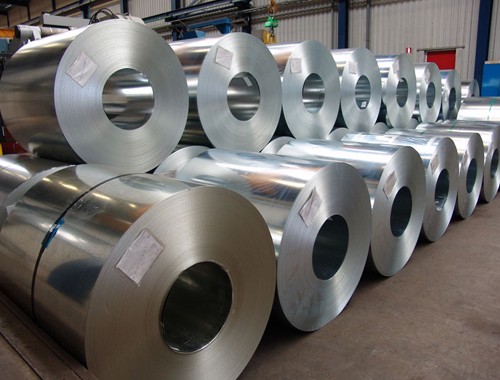
Low consumption impacts Italian coil supply chain
Service centres are losing money in the first quarter after the negative market performance of the second half of 2023. They are now receiving coils bought at some €760-770/t base delivered, leaving them with no margins on sales considering the descending value of sheet.
Pickled sheet prices are currently at below €800/t ($875) ex-works, hovering at €780-790/t, with hot rolled sheet at about €30/t less. Coil service centre customers in the heavy machinery industry are ordering back-to-back and only “tiny” volumes, sources say. They are also reporting no margins and slow demand downstream. Some are said to have cut output by 30%.
The white goods sector’s consumption continues to be weak and has a negative outlook for H1 2024. A source says that banking on the exceptional results seen in 2021 and 2022, several metal processing companies invested in personnel and equipment to maintain output. Unable to reach their objectives, these companies are now suffering financial losses, driven by lower consumption and prices. This results in service centres receiving fewer orders and having to cut output.
Meanwhile, hot rolled coil prices continue to decline as steelmakers lament low sales volumes. In Italy, HRC is now hovering at €680-690/t base ex-works, sources say.
Natalia Capra France


European CRC, HDG prices move down amid weak demand, pressure from imports
Trading remained weak in the European CRC and HDG markets amid bearish expectations among buyers, lack of end-user demand and cheaper imports, Fastmarkets understands.
Slow demand from key end-user sectors — namely automotive and construction — was a major concern for the market, sources said.
“We expect steel consumption by the automotive sector in 2024 to be 20-30% lower year on year,” a steel service center source in Germany said.
In the CRC market, European producers were avoiding giving firm offers, sources said.
“In the CRC market, imports are dominating,” a buyer in Italy said. “European mills can’t compete with Asian mills when the [price] gap is over €100 [per tonne]. The [domestic] CRC market is chronically depressed.”
Sources reported CRC offers around €800 ($874) per tonne delivered (equivalent to €790 per tonne ex-works) in Italy; meanwhile, CRC offers in Spain were heard at €800 per tonne ex-works.
Buyers’ estimates of tradeable prices were no higher than €780 per tonne ex-works.
As a result, Fastmarkets’ price assessment for steel cold-rolled coil domestic, ex-works Southern Europe was €780-800 per tonne on Wednesday, widening downward by €10 per tonne week on week from €790-800 per tonne.
Import offers have also declined over the past week.
Offers for South Korean and Taiwanese CRC with May shipment were reported at €700 per tonne CFR to Southern Europe.
A deal was reported for Korea-origin CRC at €700 per tonne CFR during the assessment week.
CRC offers from Japan and India were heard at €700-720 per tonne CFR to Southern Europe.
Fastmarkets’ weekly assessment for steel cold-rolled coil import, cfr main port Southern Europe was €700-710 per tonne on Wednesday, down by €5-15 per tonne week on week from €705-725 per tonne.
HDG
HDG offers from European mills were reported at €800-820 per tonne ex-works during the week, while buyers’ estimates of achievable prices were heard at €780-800 per tonne ex-works.
Demand for HDG was said to be dull, with buyers reporting a slowdown in downstream sales to end users in February-March.
Fastmarkets’ price assessment for steel hot-dipped galvanized coil domestic, ex-works Southern Europe was €800-810 per tonne on Wednesday, down by €10 per tonne week on week from €810-820 per tonne.
Despite a persistent downtrend in domestic and import prices since early February, trading has remained slow.
“Mills are hungry for orders, but at the same time [they are] not prepared to give in to extremely low prices. Besides that, demand is very weak because most buyers have sufficient stocks,” a trading source said.
“Nobody wants to book [HDG] in a declining market,” a second trader said.
Offers from Vietnamese and Indian suppliers of 0.5mm HDG with Z100-120 coating were reported around €785-795 per tonne CFR to Southern Europe during the assessment week.
Overseas suppliers were said to be offering mid-May shipment.
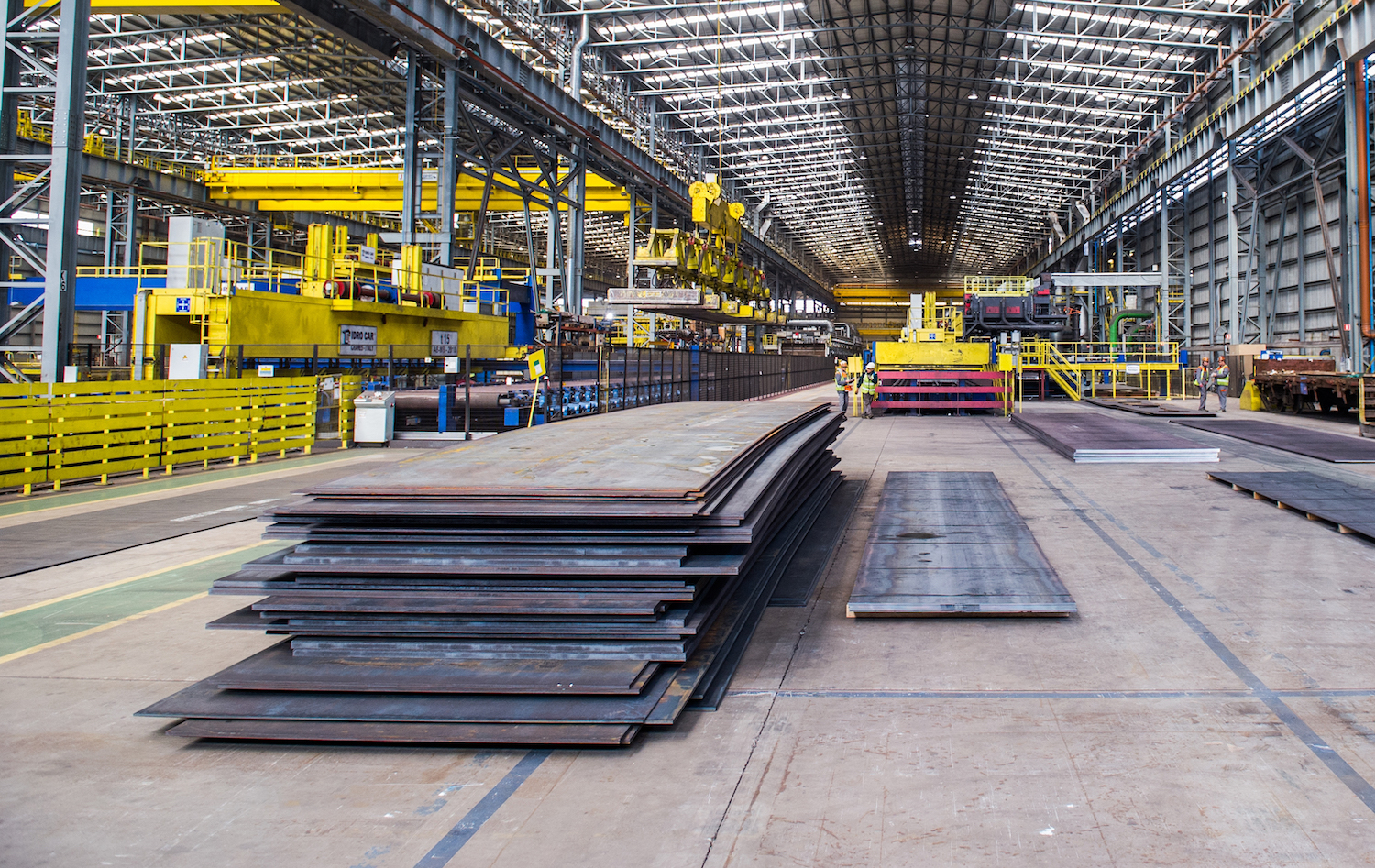
Trading slow in European heavy steel plate market, prices flat on high costs
Trading has remained thin in the Italian heavy plate market, with buyers postponing any restocking activity in expectation of further price drops.
Local re-rollers, however, pointed out that prices for heavy-plate-quality slab, the key feedstock, have remained high. Speculation about a potential export duty on China-origin semi-finished steel persuaded some slab suppliers to withdraw from the market, and the number of offers was limited.
“Only hot-rolled coil-quality slab prices have declined. Plate-quality slab is still expensive at $640-650 [per tonne] CFR, so we cannot be flexible with plate sales,” a mill source in Italy said.
“It’s a tough situation,” a buyer in Italy said. “In the first quarter, re-rollers have still had to produce [plate] from expensive slab, so they are squeezed between high costs and sluggish demand.”
Offers of heavy plate in Italy were reported at €750-760 ($820-830) per tonne ex-works for S275-grade plate, with lead times reported at four weeks.
Tradeable values were heard around €730-750 per tonne ex-works, with occasional transactions for limited volumes reported within the range during the assessment week.
As a result, Fastmarkets’ weekly price assessment for steel domestic plate, 8-40mm, exw Southern Europe, was €730-750 per tonne on Wednesday, widening downward by €10 per tonne from €740-750 per tonne ex-works seven days earlier.
Overall, trading in the Italian market was weak, and traded volumes remained low, with no restocking in sight. Market sources expected stockholders to come back to the market for limited restocking in the second half of March, but agreed that restocking was unlikely to be “booming.”
“Italian re-rollers have problems finding customers,” a second buyer source in Italy said. “They were selling more to Central Europe recently [specifically, the Czech Republic and Poland] and managed to partially substitute missing tonnages in the region, but even from Central Europe demand has been lower in the past week, with buyers purchasing only what they needed urgently.”
Due to slow demand at home, Italian producers were seeking orders from other European markets, notably Central Europe.
Meanwhile, aggressive import offers were also adding to negative sentiment in the Italian market.
Offers of plate for May shipment from Indonesia to Italy were reported at €640 per tonne CFR during the week, down from €670 per tonne CFR heard in early March.
Suppliers from Indonesia were reported to have significant volumes of heavy plate for June-July arrival, so they were aggressive in the market.
From South Korea, offers were reported at €670-680 per tonne CFR for May-shipment plate.
Northern Europe
In Northern Europe, buyers also preferred to do “hand-to-mouth” bookings to cover their urgent needs and were holding back from restocking.
“For commodity grades, [heavy plate] buyers are only booking minimal quantities and prefer to wait to see how the situation will develop in the next few weeks. The situation for project business in higher grades is better, and some mills are well booked and feel no pressure to cut prices,” a buyer in Germany said.
“Stockholders and steel service centers do not need new [heavy plate] volumes due to dull downstream demand, and prefer to sell [plate] from stock,” a second trader in Germany said.
Plate offer prices from mills in the region were mainly flat week on week, But market sources were not ruling out some downward correction in the short erm, given the downtrend in raw materials prices and sluggish buying.
One German supplier kept its offers of commodity-grade plate at €790-800 per tonne ex-works from one location, and around €840 per tonne ex-works from another location.
Buyers estimated achievable prices at €780-800 per tonne ex-works.
Two sources reported a sale of Libya-origin heavy plate to Germany at €730 per tonne delivered during the assessment week. The specifications and tonnage, however, were not clear at the time of publication. Market sources suggested that the sale involved S235-grade plate
Italy-origin plate was offered to Germany around €800-810 per tonne delivered during the week.
A re-roller in the Benelux area was offering plate to Germany at €800 per tonne ex-works.
A Czech Republic-based re-roller was offering May-June delivery plate at €800-810 per tonne ex-works.
Lead times from Northern European mills were five or six weeks, and around four weeks from Italian re-rollers.
Fastmarkets’ weekly price assessment for steel domestic plate, 8-40mm, exw Northern Europe, was €790-800 per tonne on Wednesday, stable on-week.

Bearish sentiment keeps trading thin in European HRC market
The index was down by €16.40 per tonne week on week and by €51.25 per tonne month on month.
The market was quiet, and mills were avoiding giving firm offers, sources said.
“Inquiries [for new HRC tonnages] are very low, and buyers just keep talking prices down constantly,” a mill source said.
Offers in Germany were reported at €700-720 per tonne ex-works, while offers in the Benelux area from integrated producers were heard at €720 per tonne ex-works.
April-May lead times were reported to be available from local suppliers.
Italy-origin coil with April delivery was heard offered to Germany at €700 per tonne delivered.
A mill from Central Europe reportedly offered HRC to Germany at €690 per tonne delivered, with freight estimated at €40 per tonne.
Buyers estimated tradeable prices at €680-700 per tonne ex-works, with some sources reporting estimates as low as €650 per tonne ex-works.
“Demand is just not there, and on top of that, the decline in coking coal and iron ore prices… only added pressure to steel prices,” a buyer in the Benelux area said.
Even though most sources agreed that output cuts were necessary to balance the market and stop the downtrend in HRC prices, European mills were not rushing to adjust their output.
“European mills tend to choose volumes over prices. [Steelmakers] will need to reduce output now, or they will be selling [HRC] at €600 per tonne ex-works in the third quarter,” a steel service center source in the Netherlands said.
“The cycle of production cuts should accelerate,” another source in the European market said.
In Southern Europe, Fastmarkets’ steel HRC index, domestic, exw Italy was calculated at €675 per tonne on Wednesday, unchanged day on day.
The index was down by €14.38 per tonne week on week and by €68.75 per tonne month on month.
The Italian market was also quiet because downbeat expectations continued to keep trading low, Fastmarkets understands.
HRC offers in Italy were mainly heard at €690 per tonne delivered (equivalent to €680 per tonne ex-works), while some industry sources said that €680 per tonne delivered (€670 per tonne ex-works) was also achievable on larger volumes.
Local suppliers could still offer April lead times, sources said.
In the secondary market, 4mm HR sheet was heard traded no higher than €750-780 per tonne CPT, with some steel service centers reportedly offering as low as €740 per tonne CPT. Downstream sales were also reportedly very slow.
Import HRC offers from Asia were also under pressure from low demand and a downtrend in raw materials prices, sources said.
Offers from Vietnam, South Korea and Taiwan were consolidating around €585-600 per tonne CFR, but buying interest has remained low, Fastmarkets understands.
Most Asian suppliers were heard offering May-shipment HRC, which would mean June-July arrival.
An offer from Saudi Arabia was reported at €570 per tonne CFR for May shipment.
Most overseas suppliers were heard offering May-shipment HRC, which would mean June-July arrival.

Steel transport costs still 150% higher due to Suez crisis: Italian steel body
For steel that traditionally passed through the Red Sea, the average price of transport by container ships has gone from $1,200 per twenty-foot equivalent unit in December to around $3,000/TEU, with all major container shipping companies continuing to shun the Suez route.
The cost had steadily decreased through February from its peak of $5,300/TEU in late January, but “the situation continues to be highly volatile and unpredictable, because freight prices change suddenly and make it impossible to hypothesize the evolution of costs from one day to the next,” Gian Pietro Alberti, Member of the Technical Committee of Assofermet Acciai, said.
The container freight rate for shipping from North Asia to the Mediterranean rose from $1,600/FEU Dec. 1 to $7,000/FEU Jan. 10, then a 16-month high, before easing to $4,000/FEU March 11, according to assessments by Platts, part of S&P Global Commodity Insights. One forty-foot equivalent unit (FEU) is equivalent to 2 TEU.
The Red Sea crisis has also driven up lead time — to transport steel to Europe from countries in the Far East, it takes 15-25 days more than the 30 days it previously took.
Increasing freight rates along with concerns about the exhaustion of safeguard quotas made EU buyers hesitant about booking tonnages from Asia.
The EU has had safeguard measures in the form of tariff rate quotas for imported finished steel since 2018. Market participants have expressed concerns about having to pay compensation fees to affected exporters if the measures come to an end in mid-2024.
Platts assessed the price of imported hot-rolled coil in Northwest Europe at Eur640/mt ($699/mt) CIF Antwerp Dec. 1, rising to a high of Eur680/mt Jan. 12. By March 11, it had dropped to Eur614/mt.
In Southern Europe, the price of imported coil was assessed at Eur640/mt CIF Italy Dec. 1 and at a high of Eur680/mt Jan. 25. On March 11, the price had fallen to Eur590/mt.
On long steel products, Turkish rebar market sources said sales to some export destinations — including its top export markets, Israel and Yemen — had been hampered by the Red Sea security situation, after already being affected by the Israel-Hamas war. Demand is expected to remain slow until these situations are resolved, with further pressure on Turkish export rebar prices expected.
Platts assessed Turkish exported rebar at $587.50/mt FOB March 11, flat on the day.
Author Annalisa Villa, annalisa.villa@
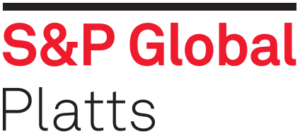
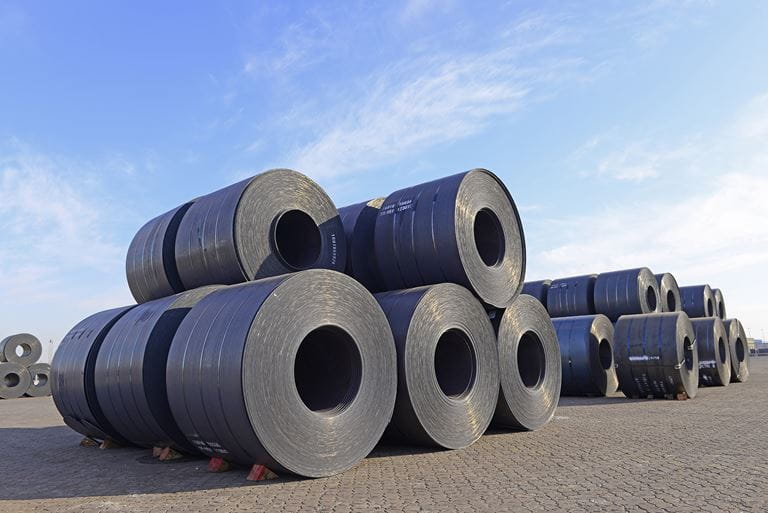
EU HRC market activity sluggish as buyers resist purchases
“Prices may go down further in Q2,” an Italy-based service center source said.
Lack of real demand led to some market participants anticipating mills to trim output, but others mentioned that lack of interest in imports may prompt producers to remain firm.
Offers were reported at Eur700/mt ex-works Ruhr for domestic HRC in Northwest Europe.
Platts assessed the price of domestic HRC in Northwest Europe stable on the day at Eur690/mt ex-works Ruhr March 12.
Interest in imports remained muted despite offers heard from Asian producers due to uncertainties about safeguard quotas.
“No one wants to risk buying imported material,” an Italian mill source said. “There are risks of every kind from safeguard quota exhaustion to price volatilities.”
Asian mills were heard making offers at Eur610-620/mt CIF Antwerp for July arrival cargoes.
Platts assessed the price of imported HRC in Northwest Europe stable on the day at Eur614/mt CIF Antwerp March 12.
Author Rituparna Nath, rituparna.nath@spglobal.


Germany launches first climate CFD tender with Eur4 billion on offer
Companies are to bid in a required carbon price supplement for projects to proceed. Those with the lowest supplement to compliance carbon prices in the EU ETS will proceed.
The first tender focuses on mid-sized companies in the paper, glass, chemical, steel and metals sectors.
Support has been capped at Eur1 billion per project, with a typical 15-year support contract more likely to sum in the triple digit hundred million euros range, the ministry said.
“We want to keep industrial production and sustainable jobs in Germany,” said energy minister Robert Habeck.
Companies can use funds to switch to greener processes using renewable power or clean hydrogen, or to add carbon capture equipment to existing processes.
Pre-qualified companies can now submit bids with the first tender closing in June. A second tender focused on larger projects is to open in the summer and two tenders more are planned for 2025.
Industrial carbon target
In total, the instrument is estimated to support some 350 million mt of CO2 savings by 2045 amounting to around 20 million mt/year, which is a third of the 2030 emissions reduction target for German industry, the ministry said.
The German industry, which saw annual CO2 emissions plunge 12% on year in 2023 to around 144 million mt, needs to hit a 2030 sector target of 118 million mt under Germany’s climate law.
Platts, a unit of S&P Global Commodity Insights, assessed the Dec. 2024 EUA contract at Eur56.13/mt on March 11.
Analysts at S&P Global forecast EUAs to average around Eur54/mt in 2024, rising to a Eur82/mt average in 2025.
Basis for the contracts is a dynamic CO2 price adjusted to market trends for EUAs, clean hydrogen and electricity, the ministry said in supporting documents for the tender.
Author Andreas Franke, andreas.franke@

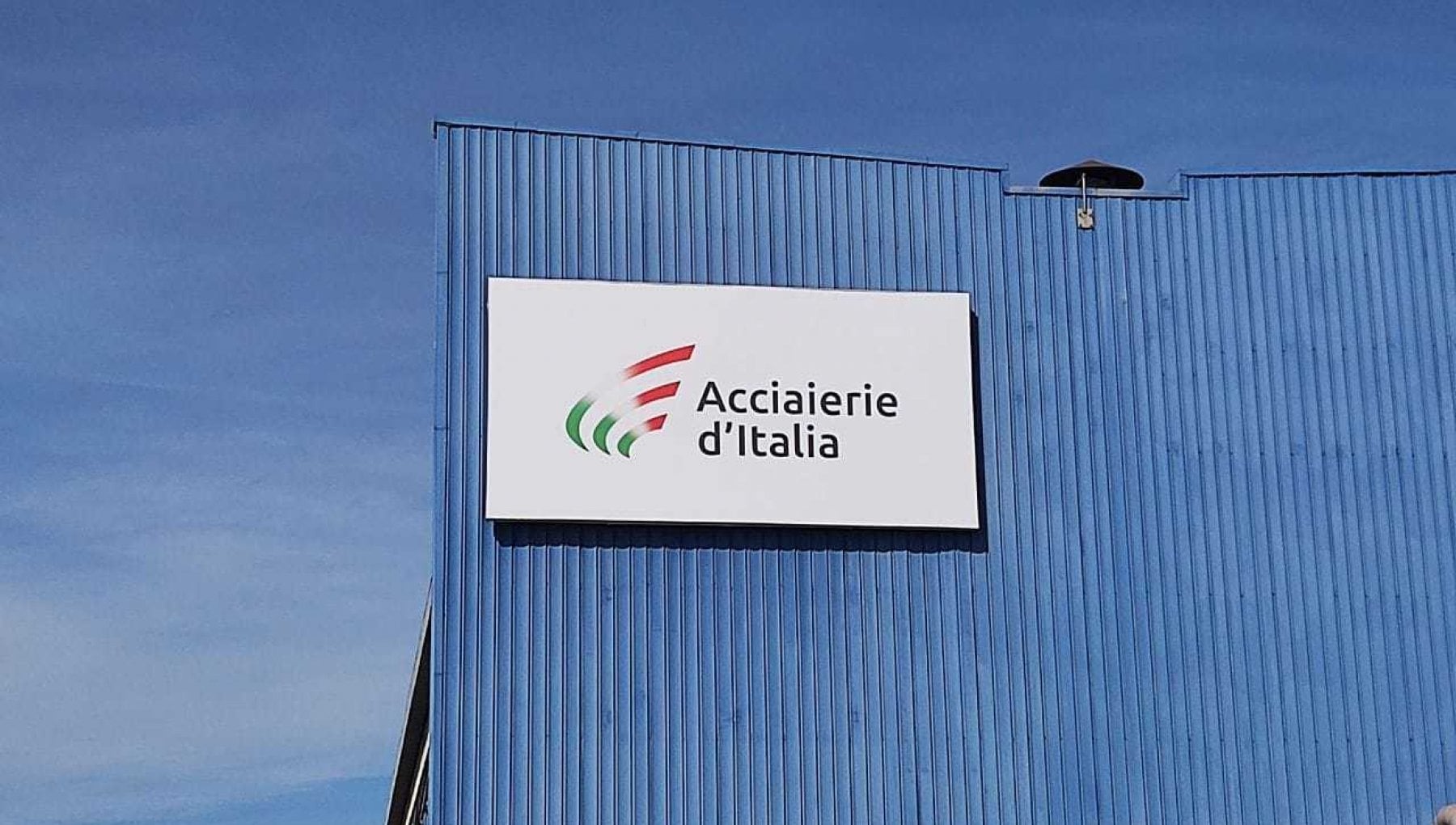
Acciaierie d’Italia attracts five interested companies: minister
Five multinational companies are interested in troubled steelmaker Acciaierie d’Italia (ADI), formerly known as Ilva, Italy’s Minister of Enterprises and Made in Italy Adolfo Urso said after a meeting with trade unions in Genova last week. Three of these five companies have projects that are “rather structured”.
“In Piombino, we managed to implement two different and complementary industrial projects. That of the Indian group [JSW] that has finally stated its intention to invest in the rail mill and that of the new investor, the largest Ukrainian multinational … the group Metinvest together with Danieli. I think this may be a model to apply in this case. We intend to build a national steel plan to present to the country before the summer, capable of showing the strategic objectives of the government,” Urso told local press.
The plan will include the relaunch of the former Ilva’s steelmaking sites, the relaunch of Piombino and Acciai Speciali Terni with Arvedi.
Last week, Urso and ADI commissioners Giancarlo Quaranta, Davide Tabarelli and Giovanni Fiori visited the plant in Genova. Union sources say the commissioners will implement a mapping of the equipment at the Taranto steelworks to understand the maintenance required.
ADI was declared insolvent by the Milan tribunal due to “an absence of liquidity”. This officially triggered the procedure of special administration initiated last month that took control of the firm from ArcelorMittal. It allows the state to inject into the company the necessary funds to guarantee production continuity (see Kallanish passim).
Authorities are seeking private investors for ADI after Prime Minister Giorgia Meloni said the government intends to avoid nationalisation. It is rumoured to be in talks with local steelmaker Arvedi, but also with Metinvest and Jindal Steel subsidiary Vulcan Green Steel.
Meanwhile, the commissioners have appointed Giuseppe Cavalli as director general of ADI.
Natalia Capra France

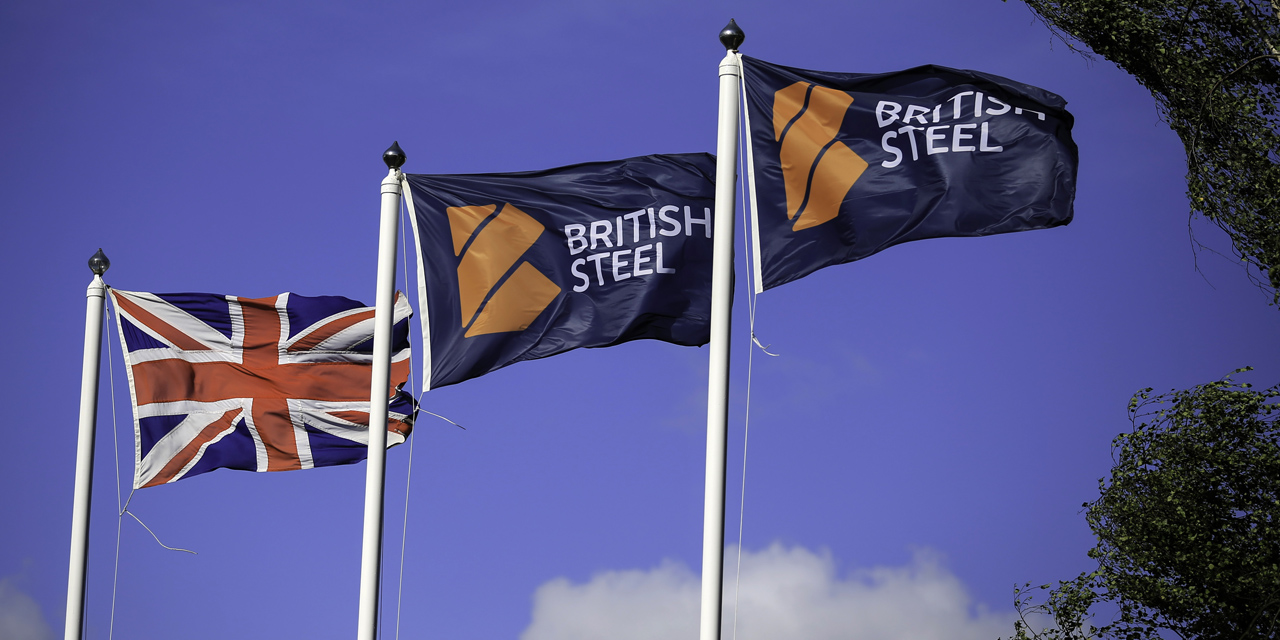
Abandoning ‘Power Pools’ hampers steel electrification: UK Steel
The UK government’s abandoning of the Green Power Pools policy proposal is a blow to the steel industry’s electrification aspirations. The move will likely hit steelmakers with higher wholesale electricity prices for many years before new generation is deployed in their locality, says UK Steel.
The Green Power Pool was one of the key proposals in the government’s Review of Electricity Market Arrangements (REMA) consultation process. Power Pools have been adopted in France, Italy and Greece and were proposed by government because of their ability to deliver a more efficient energy system and provide lower prices for industry.
The government has however confirmed that it will only proceed with a locational marginal pricing (Zonal LMP) model. Zonal LMP would separate the network into many individual zones, each zone with its own price, to encourage new generation near demand and encourage power users to locate near existing generation, UK Steel says. Steelmakers cannot however relocate to lower-price zones.
With a further switch to electric arc furnaces, it is expected that the sector’s electricity consumption will roughly double.
“Government is missing a golden opportunity to ensure electrified, green steelmaking can thrive in the UK,” UK Steel energy and climate change policy manager Frank Aaskov says in a note sent to Kallanish.
“As the steel industry switches to electric furnaces to reach vital Net Zero targets, we must not lose sight of how important electricity costs are in the move to green steel. We paid £117 million [$150m] more for our electricity in 2023 than our European competitors. Discarding the Green Power Pool proposal makes it unclear how the Government seeks to fix this,” Aaskov continues.
“The Government has worked hard to deliver its Industry Supercharger package to reduce industrial electricity costs, only for it to go forward with wholesale market reforms which could increase power prices. This is like giving with one hand, while taking with another,” Aaskov concludes.
Adam Smith Poland



